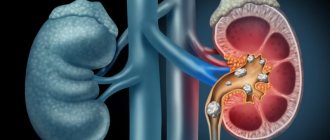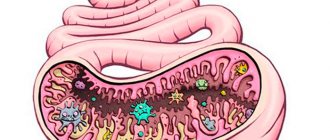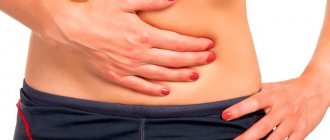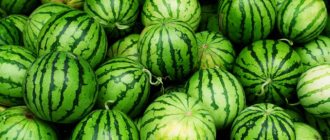Why do you want to sleep after sweets - VospalenieKishechnika
Let's look at the main causes of drowsiness after meals and ways to combat them.
You've probably noticed that periodically after a heavy or sometimes very light lunch you feel sleepy. Unfortunately, as scientists report, this problem plagues every second inhabitant of our planet. However, there is good news: it is possible to overcome drowsiness after eating, you just need to understand the root causes of its occurrence.
There may be several reasons. The most common thing is overeating. Don’t forget that at the very foundation of the concept of proper nutrition is the message that you need to get up from the table feeling slightly hungry.
The second, simplest and radically opposite reason is that too few nutrients enter your body with food, which does not allow the brain to function fully. Thus, the body goes into “energy saving” mode. That is why nutritionists advise eating frequently and in small portions.
Try to exclude “empty” foods from your diet, such as low-fat (0%) cottage cheese or milk.
instagram.com/yuu_na_pp
Are you sure that everything in your diet is correct, but you still want to sleep after every meal? You've probably heard that our brain feeds on sugar and therefore it is necessary to consume sugar in situations that are difficult for the brain (exam, report, public speaking). However, such “feeds” not only do not help the brain, but even cause drowsiness and loss of strength.
instagram.com/yumyum.style
In fact, when a person eats something sweet, the glucose level in his blood jumps sharply and he very quickly begins to feel a surge of energy.
But immediately, in response to a large dose of sugar, the body produces insulin, which removes glucose from the blood and distributes it throughout the cells... And so the glucose level, which has skyrocketed, falls, as a rule, even below the original one. This is where drowsiness occurs.
This absolutely normal reaction of the body is due to the fact that the brain does not need glucose in large quantities. He needs it in small quantities and regularly. This can be provided by so-called slow carbohydrates (porridge, grain bread, durum wheat pasta), but in no case sweets.
TOP 5 tips. “What can I do to gradually reduce the level of sugar in my diet?”
Avoid eating sweets when you want to feel alert and energetic.
Reduce the amount of sugar at one time (try putting not two spoons in tea, but one and a half and gradually reduce the dosage);
Increase the time from one sweet consumption to another;
Eat it in small quantities only after meals (preferably after easily digestible protein foods - dairy products or omelettes);
Find a table on the Internet with the glycemic index of foods (how much natural sugar is in a food) and take it into account when planning your diet for the week.
www.championat.com
5 foods that make you sleepy
12:33 15.02.2017
Surely you have noticed more than once that after eating, from time to time, you really want to sleep. Many people think that this reaction of the body comes from the very fact that you have eaten. Actually this is not true.
Certain foods are actually to blame for the desire to get to bed and sleep in broad daylight. Let's see which ones exactly.
Lettuce leaves
Lettuce leaves may cause increased drowsiness. The thing is that light food often causes fatigue. This is due to a lack of necessary substances in the body. To put it simply, when you just have a vegetable salad for lunch, your body does not have the resources to function normally.
IN THE TOPIC: How to improve digestion: 6 foods high in fiber
Therefore, always combine vegetables and herbs with something protein: eggs, meat, fish.
Dairy
Dairy products can also make you want to sleep. Studies show that milk protein intolerance can appear after 30-35 years, and one of the signs is a feeling of fatigue.
Conduct an experiment: eat cottage cheese for an afternoon snack and observe your body. If you feel sleepy after eating dairy products, this is a reason to think about it.
Nuts
Nuts are rich in magnesium, which relaxes muscles and makes a person want to rest. This is natural and absolutely not scary.
IN THE TOPIC: 10 products for beautiful hair
Just try to eat nuts at times when you have time to rest. Peanuts and almonds are especially rich in magnesium.
Bananas
Bananas, like nuts, are also rich in magnesium, which naturally makes a person sleepy. This is especially acute for people who are deficient in magnesium.
To avoid drowsiness, nutritionists advise eating bananas with other fruits (apples, citrus fruits).
Sweet
Sweets often make a person want to sleep. More precisely, not like that. Immediately after eating you will feel a surge of energy, but after a fairly short time you will feel drowsy. This is due to the fact that sugar very quickly gives a surge of energy, which will disappear just as quickly. And you will feel weak and want to sleep.
ON THE TOPIC: What foods will speed up your metabolism?
Therefore, try to eat less sweets, and you should not eat them separately from your main food.
Depositphotos
Source: https://vospaleniekishechnika.life/anatomiya/funktsii/pochemu-posle-sladkogo-hochetsya-spat.html
How to deal with nausea and weakness after eating?
To help your body cope with food digestion, you need to stick to a carbohydrate diet and eat less fat. After eating, it is advisable to lie down to rest.
If you want to reduce the likelihood of nausea after eating, try:
- eat small portions;
- do not wash down food with water;
- do not eat sweets and do not drink coffee on an empty stomach.
At the first signs of nausea, you need to drink 15 drops of mint tincture dissolved in water, or eat half a lemon.
If food does not have time to be digested and enters the intestines, severe weakness after eating can occur even when consuming a small portion. That is why, before taking any measures, you need to find out the cause of poor health.
Nausea and weakness after eating food most often become a sign of poor nutrition. To get rid of this condition, you need to follow a regimen, eat regularly and not overeat.
After a hearty lunch, you really want to lie down on the sofa and take a nap for an hour or two. But what to do if this is impossible, and weakness after eating does not go away?
It’s worth thinking about: perhaps this is the first symptom of a serious illness.
Before you panic and search on the Internet or medical reference books for why you feel weak after eating, write down your daily routine minute by minute. Calculate how much time you spend sleeping and eating. Remember what time you go to bed, what you eat, how often you are outdoors, or play sports. If you sleep little, go to bed late, eat processed foods, and have only heard about sports, then your body signals weakness after eating about chronic fatigue. While eating, you forget a little about your business and problems, relax, and your body receives a signal that you can rest. Change your diet, sign up for a swimming pool, walk before bed, go to bed no later than 23.00, and everything will return to normal.
Weakness after eating: is it diabetes? If lethargy after eating is repeated regularly, an assumption can be made in favor of diabetes. If drowsiness after lunch is accompanied by constant thirst, you constantly run to the toilet to urinate, you have lost a lot of weight, wounds and scratches take too long to heal - immediately see a doctor for urgent tests. Diabetes mellitus is not such a terrible disease as many imagine. Especially if the patient strictly adheres to the recommendations prescribed by the doctor. But living with this disease is quite problematic, especially if the disease has progressed to a stage in which the patient becomes insulin dependent. And besides injections, there is little pleasant in diabetes, as, indeed, in any other disease. Constantly strict restrictions will not allow you to enjoy life to the fullest. If you notice signs of weakness after eating, do not risk your health. It’s better to play it safe and consult your doctors in advance.
Surgery causes drowsiness If you have recently had surgery on the stomach or duodenum, then weakness after eating may be the first symptom of dumping syndrome. This name refers to a disease in which the stomach empties too quickly. The main manifestations of dumping syndrome:
- severe general weakness;
- nausea;
- dizziness;
- accelerated heartbeat;
- sweating;
- decrease in blood pressure.
If your doctor diagnoses you with dumping syndrome, don't worry. This disease can be managed with fractional nutrition. If this does not help, you will need to have a second operation, during which you will lengthen the path of food removal from the stomach. This should save you from dumping syndrome. It would seem that such an ordinary thing is weakness after eating, but there are so many diseases hidden behind this symptom.
Monitor your health and consult a doctor regularly. And let the sleepiness after lunch be solely because of the delicious food! Surprisingly, instead of a surge of strength, some foods can cause a noticeable loss of strength. Fatigue after eating happens often, and it’s not just some kind of heaviness in the stomach, like you’re full.
This is a stable feeling, sometimes stretching for half a day. Often, due to an incorrectly followed diet, a person experiences weakness and lack of energy day after day. But it seems that the diet is quite satisfying, and I would like to make the rhythm of life more active, but it doesn’t work. Where do fatal mistakes lie?
In this article we will look at two main questions:
- What foods make you tired?
9 Signs Your Body Doesn't Tolerate Sugar Well – HEROINE
It is difficult to notice when there is too much sugar in your diet, because eating habits form and change gradually. But our body is a clearly balanced mechanism: if you don’t notice your excessive craving for sweets with your mind, your body will let you know in other ways.
We'll tell you what symptoms indicate that your body does not tolerate sugar well.
Think about how you feel after eating something sweet. If you reach for coffee after dessert and start to fall asleep at your desk, this may be due to fluctuations in your blood sugar levels.
According to nutritionist Amadna Dale, RD, people whose bodies process sugar normally feel energetic and full after eating sweet foods. Those who are especially sensitive to sugar, on the contrary, feel irritability, drowsiness and loss of energy.
You've become very emotional lately
Unstable mood can be caused by fluctuations in blood sugar levels. In addition, there are studies that show a link between the consumption of sugary and carbohydrate foods and drinks and depression.
While there can be many reasons for poor mental health, what we eat has a significant impact on our physical and mental well-being. The easiest way to find out if your increased emotionality is related to sugar is to cut back on your sugar intake for a while and see how you feel.
From hunger you feel severe weakness, dizziness, irritability
Low blood sugar can cause a condition called hypoglycemia. Symptoms of this syndrome: increased aggressiveness, irritability, sweating, dizziness, nausea, hunger, general weakness. After sweet food or drinks, a person quickly feels better, but not for long.
If you feel similar symptoms that go away after a snack, you should contact your doctor.
You often feel bloating and other intestinal problems
Gut problems such as bloating, diarrhea, constipation may be due to sugar-induced Candida overgrowth. When you eat or drink a lot of sweets, fermentation begins in the stomach, which produces a lot of gas.
You experience strong cravings for sweets
If you constantly crave sweets or feel that you are not full, although you eat quite a lot of unsweetened food, the reason may also be due to surges in blood glucose. Regular cravings for sugar occur due to a decrease in sugar levels in the body. Addiction can manifest itself in the need to necessarily end each meal with dessert or snack on something sweet during the day.
Do you feel pain in your joints?
Another negative side effect of consuming more sugar throughout the day is unreasonable body aches and pains that are caused by inflammation in the body.
According to nutritionist Lauren Minchen, regular spikes in blood glucose levels can lead to overall inflammation, which contributes to aging, poor digestion and joint pain.
If you feel like you're falling apart, it might be time to rethink your diet.
Became distracted and lethargic
Confusion, drowsiness, constant fatigue, lack of motivation and energy can also be symptoms of the harmful effects of sugar on the body.
You should be especially wary if these conditions intensify after heavy carbohydrate or sweet foods. This is how your body signals that it burns and stores glucose more slowly than you consume it.
Plus, when you eat too much sugar, your body has to produce extra insulin and cortisol, which leads to fatigue.
Can't sleep at night
There can be many reasons for insomnia or frequent awakenings in the middle of the night: stress, excess caffeine, abuse of electronic devices, lack of routine. Sugar is also one of the disrupters of your night's peace. Eating large amounts of sugary foods during the day or before bed can prevent the body from entering the deep phase of sleep, which means it can rest and recover.
A 2020 study confirmed the link between increased carbohydrate and sugar intake with short, restless sleep and difficulty falling asleep.
Skin condition has worsened
Our skin is incredibly sensitive to sugar. This is likely due to the insulin response, which triggers a chain of endocrine and hormonal changes that cause inflammation in the skin.
If you notice that your skin has become more inflamed lately, this is a clear sign that it’s time to listen to your body and pay attention to your diet.
Read on topic: How to eat more vegetables if you don't like their taste
Source: https://heroine.ru/9-priznakov-chto-tvoj-organizm-ploho-perenosit-sahar/
Causes of weakness after eating
Many people feel tired or nauseous after eating. Such symptoms may appear in some diseases. Or it’s just a side reaction of the body to the foods eaten. And for some this is the norm.
The reason for concern should be the appearance of nausea and a feeling of weakness after each meal. If this happened once, then most likely there is no serious reason for this.
The reasons for feeling unwell after eating can be:
- Eating hard-to-digest foods. This leads to weakness and mild nausea, which occurs when there is increased pressure in the small intestine due to the intake of heavy food.
- Large energy expenditures for the digestion process. The result is fatigue.
- A sufficient level of glucose enters the blood. If a person is hungry, the brain produces a special substance - orexin, which promotes vigor. When you eat food, your glucose level increases. Because of this, the production of orexin stops, and the person becomes sleepy.
- Taking medications. Taking medications may cause nausea and weakness after eating.
- Overeating or fasting.
- Eating sweets on an empty stomach.
- Pregnancy.
- Consequence of gastric surgery.
- Disruption of the endocrine system.
In addition to nausea or weakness, other symptoms sometimes occur, such as vomiting and abdominal pain. These are already signs of disruption of the gastrointestinal tract. In this case, you need to undergo a medical examination.
Why does sweets make you sleepy? How is this related to reactive hypoglycemia?
If a person constantly feels sleepy, this may indicate a problem. Reactive hypoglycemia, or a sharp drop in blood sugar, is the cause of increasing insulin resistance (immunity).
Being constantly tired is bad enough, but problems with blood sugar regulation can lead to even more serious consequences, including heart disease, strokes, cancer or dementia.
A diet rich in simple carbohydrates and processed foods is notorious for causing excess weight gain. And in the short term, food with refined carbohydrates (white bread, pastries) always plays a cruel joke on a person.
At first I felt full and pleased, but after 3-4 hours it was as if I hadn’t eaten at all. This is because the blood glucose level jumped for a short time, and then fell just as quickly. For the same reason, after eating sweets and starchy foods, you may feel sleepy.
It doesn’t seem to be anything serious, but the following may be added to the usual drowsiness:
- sense of anxiety;
- cardiopalmus;
- headache;
- increased sweating;
- insomnia;
- panic attacks.
This is a classic manifestation of reactive hypoglycemia. Moreover, similar symptoms can also be experienced by a healthy person with normal body weight. This state is sometimes called “evil hunger.”
If they happen after almost every meal, the situation is more serious. It is likely that the body gradually begins to lose sensitivity to its own insulin, the hormone that is responsible for normal blood sugar levels.
The link between sugar and sleepiness
So, how are sugar and sweets related to a constant feeling of drowsiness? A diet that is very high in simple carbohydrates carries with it a “high glycemic load” – that is, it causes glucose to quickly enter the bloodstream.
Next, a period of homeostasis begins - the body injects a certain amount of insulin into the blood to process the excess. Due to a sudden decrease in insulin, a feeling of fatigue, drowsiness, and irritability occurs.
In the USA, a whole series of clinical studies were conducted on people who ate a typical American diet: white bread hamburgers, hot dogs, soda, sweets and the like.
It turned out that a diet with a high glycemic load provokes constant fatigue, sleep problems and slow cognitive functions. In the long term, a diet full of empty calories and simple carbohydrates (bread, chips, pasta, white rice, potatoes), sugar (chocolate, baked goods, candy) and sugary drinks (soda, juices) can cause insomnia.
The truth is that our body requires a strictly defined amount of carbohydrates per day. For example, a healthy adult man needs about 75 – 130 grams, while in a balanced diet they should make up only 15 – 35% of the total diet.
How does insulin resistance develop?
Eating a high-sugar meal every day causes the pancreas to produce more insulin day after day. This is how our body tries to cope with the load.
The mechanism of insulin resistance is not yet fully understood, however, it is known that it is provoked by obesity, since adipose tissue is the least responsive to insulin.
Unfortunately, the symptoms of reactive hypoglycemia are usually vague, and people often do not associate them with high consumption of sweets.
What are the dangers of reactive hypoglycemia?
Symptoms of reactive hypoglycemia may occur early in the development of insulin resistance.
A typical breakfast these days often consists of a sweet bun and coffee with sugar. And then people periodically “catch up” with sweets at work. Someone brought a cake for a birthday, ordered pizza in honor of the holiday, someone shared candy and off we go...
By eating this way, you will feel a surge of strength for a short period, however, then a drop in blood sugar will inevitably occur along with all the accompanying symptoms in the form of fatigue and irritability.
The consequences of this, in addition to increasing clothing sizes and eternal sleepiness, are much more serious than they seem.
- Increased blood pressure;
- Increased “bad” cholesterol and triglycerides in the blood;
- Deterioration of memory and cognitive abilities;
- Decreased sex drive and even infertility;
- Oncological diseases.
Alas, the only secret to getting rid of reactive hypoglycemia is proper nutrition, exercise and adherence to a regimen. You will need to exclude from your diet all foods that create a high glycemic load and are not beneficial.
However, in addition to blood sugar surges, there are a number of other causes of chronic fatigue that doctors usually ignore. One of them is leaky gut syndrome and chronic inflammation of the small intestine.
Source: https://medvisor.ru/articles/diabet/pochemu-klonit-v-son-ot-sladkogo-kak-eto-svyazano-s-reaktivnoy-gipoglikemiey/
Why do you feel dizzy and weak after eating?
The causes of weakness after eating can be very different. Some of them are fully explained by normal physiological processes, while others may signal more serious health problems. In any case, you need to pay attention to the behavior of your body in order to take timely preventive measures or therapy if necessary. Let's look at the main causes of severe weakness after eating.
Heavy and junk food
Everyone knows how beneficial proper nutrition is, what an invaluable contribution healthy food makes to the body and how much it improves a person’s health. But in practice it turns out that we love food that is harmful to our gastrointestinal tract more. Fried meat, potatoes, additives in the form of ketchup, mayonnaise - all this contributes to nausea and weakness after eating. This happens because the body spends a huge amount of energy on digesting and assimilating such food. Until the newly received nutrients turn into energy, the body feels its lack, which manifests itself as weakness after eating.
Scientists have proven that consuming foods containing tyramine causes constriction of blood vessels in the brain. As a result, after eating you feel nauseous, dizzy, and weak. Tyramine is found in large quantities in cheeses, preserves, fermentation products, etc.
Excessive consumption of carbohydrates also leads to an increase in blood sugar levels, which contributes to a loss of energy after eating. Difficult to digest foods, even in large quantities, contribute to the formation of a food bolus - chyme. The stomach does not have time to digest it, as a result, it enters the small intestine, exerting strong pressure and stretching its walls. As a result of this process, the adrenal glands release large amounts of catecholamines into the blood, which cause fatigue, dizziness, sweating and shortness of breath.
Biochemical processes
Why do you feel tired after eating sweets? – Other – Vitaminov.net
October 20, 2016
We all love sweets and often eat them to treat ourselves. Some of us even develop sweet cravings that cannot be satisfied with other foods.
Sweets or any other foods high in sugar can improve our mood, or so we think. However, they may have adverse effects on some people.
The following describes the causes of this condition, certain accompanying symptoms and preventive measures that should be taken to mitigate it.
Homeostasis
There is a myth that sugar provides the body with instant energy. The truth is that when you consume sugar, your blood levels increase. The pancreas then produces insulin to maintain homeostasis and stabilize these levels.
This causes a sudden decrease in blood pressure, causing the person to feel tired. Thus, fatigue after eating sugar is a natural reaction of the body to an increased amount of this substance. In most cases, it goes away on its own as soon as your blood sugar levels return to normal.
To stop this type of fatigue, limit your consumption of sweets as much as possible. Also avoid eating refined carbohydrates such as bread, pasta and rice, among others. Follow a balanced diet and eat meals at regular times.
Also, to keep your blood sugar levels stable, avoid sudden dietary changes such as going on a strict or liquid diet.
Serotonin imbalance
Serotonin is a chemical that transmits signals from one part of the brain to another. It affects brain cells associated with a number of body functions, such as sleep, appetite and memory.
When a person consumes foods high in sugar, the body's natural reaction occurs. Blood sugar levels rise and the pancreas releases more insulin into the blood to balance these levels.
Some people overproduce insulin , which causes a protein building block called tryptophan to move toward the brain. In the brain, tryptophan combines with hydroxylase to form serotonin.
An imbalance of serotonin can cause the body to feel exhausted and sleepy after eating sweets. This is another reason behind fatigue after eating sugar.
Reactive hypoglycemia
If fatigue after eating is accompanied by other symptoms such as rapid heart rate, nervousness, dizziness, lightheadedness, headaches, sweating, insomnia and panic attacks, there is a possibility of reactive hypoglycemia.
This condition can occur in both diabetics and non-diabetic people. When a person with reactive hypoglycemia eats sweets or foods high in sugar, their pancreas produces and releases excessive amounts of insulin into the bloodstream.
This leads to a rapid drop in blood sugar levels, thereby causing a feeling of fatigue.
Prediabetes
This is a condition in which blood sugar levels rise above normal, but not so high that type 2 diabetes can be diagnosed. Prediabetes can also cause fatigue after eating sweets.
It occurs when the pancreas produces less insulin than needed or when the body does not use the released insulin properly.
To confirm that your sugar levels are in the range corresponding to prediabetes, a sugar test is required, and the medical center will help you with this.
Prediabetes can be treated by losing excess weight and avoiding sweets and carbohydrate-rich foods. If this condition goes undetected or goes untreated, it can develop into type 2 diabetes.
Associated symptoms
Other symptoms that may accompany feeling tired after eating sugar or sugar-containing foods vary from person to person. It should be kept in mind that a person may experience one or more of these symptoms, or none of them. Listed below are some possible and common symptoms.
- Difficulty concentrating. Due to irritability, nervousness and confusion, people have difficulty concentrating. A person may feel that they are unable to properly perform otherwise simple activities. Moreover, people who suffer from hypoglycemia may complain of headaches, tremors and weakness.
- Stomach problems. If a person has a weak digestive system, fatigue after eating high-sugar foods can lead to irritable bowel syndrome.
- Dizziness. This is the most common symptom that accompanies feeling tired after eating too much sugar.
Foods to Avoid
As mentioned above, to keep your blood sugar levels within normal limits, it is recommended to control your sugar or carbohydrate intake. Take a look at this list of foods to eat less often or not at all if you feel tired after eating sweets:
- Fruit and vegetable juices
- Corn products (corn chips, corn bread, popcorn)
- Milk and dairy products
- Sweets (toras, chocolate, sweets, cookies, pastries, etc.)
- Fruits (bananas, figs, grapes, oranges, apricots, apples, pineapples, etc.)
High carbohydrate foods such as pizza, pasta, potatoes (chips), etc. These products also contain artificial sweeteners, which can cause dizziness because the body mistakes them as real sugar and reacts to them.
Preventive measures
The main and primary preventive measure is to drink plenty of water. Dehydration may be the main reason why you feel tired after consuming too much sugar. Medicinal plants have the ability to reduce cravings for sweets.
You can use plants such as fenugreek, stevia and gymnema. One of the best remedies for almost any minor digestive ailment is to eat small, frequent meals.
This reduces the burden on the digestive system because digestion does not require as much energy.
The diet should include more foods rich in fiber and less foods rich in carbohydrates.
There is no need to stop consuming sugar suddenly as it has adverse effects on the body. If you want to reduce your sugar intake, do it gradually, giving your body a chance to get used to the changes. Getting plenty of exercise is also a good way to prevent fatigue after eating sugar.
If you feel tired after consuming some sugar every now and then, there is nothing to worry about as this is a normal occurrence. However, if post-meal fatigue occurs frequently, is accompanied by severe symptoms, and does not go away on its own, it is recommended that you see a doctor and begin appropriate treatment.
Source: buzzle.com
Source: https://www.vitaminov.net/rus-prochee-0-0-25800.html
Typical nutritional mistakes that lead to fatigue
The diet of an adult is most often an established phenomenon. We eat what we are used to. And of course we can change our preferences, but we need a good reason for this. Fatigue after eating
often becomes a consequence of eating habits. And here are a few of those that really lead to a breakdown.
- Lack of balance
It is widely known that macronutrients (proteins, fats and carbohydrates) in the daily diet, at least approximately, must correspond to a certain norm. The average person needs 30% protein, 20% fat and 50% carbohydrates. Then the body will competently distribute energy to process food and borrow the same energy reserves from it. Along with nutrients. If the balance is not slightly disturbed, but too much, you may experience fatigue after eating.
For example, an excess of proteins is an excessive burden on the digestive system. Too much fat in the diet puts a strain on the liver and will sooner or later result in extra pounds on the buttocks or even obesity in the internal organs. But even carbohydrates in the diet are the path to extra pounds and slower mental activity, especially if the carbohydrates are quickly absorbed. Only a balanced diet can maintain optimal physical condition, mental activity and vigor. So, maintain an adequate combination of meat and fish, grains and dairy products, and, of course, fruits, vegetables, and nuts in your daily diet.
- Mess in food
It's not so much about an unbalanced diet, but about a chaotic one. Coffee and cookies for breakfast, a sandwich in a hurry instead of lunch, a late dinner that combines almost everything that could be distributed for the day. Of course, with such a diet, you will feel tired all day long. First due to an inadequate breakfast, then due to the lack of lunch as such, plus the heaviness from dinner. With such nutrition, the body will direct maximum energy to overcome evening food loads. At the same time, one cannot count on absorbing a sufficient amount of nutrients, vitamins and microelements.
- Insufficient drinking regime
In addition to all sorts of drinks consumed throughout the day, simple drinking water is not always given a significant place. A violation of the water-salt balance can manifest itself as chronic fatigue and depressive states. Metabolic processes are disrupted, internal structures are gradually destroyed, invisible to the naked eye, and physiological degradation occurs. Calculation of the amount of liquid required per day at room temperature is 30 ml per 1 kg of weight. When body or air temperature rises - up to 45 ml per 1 kg of weight. Recommendations to drink up to 2 liters of water, not counting other liquids, have no scientific basis and in most cases are harmful to the body.
- Constant dieting
It depends on what you call a diet. If it's strictly following a balanced diet, fine. But if this is a constant effort to lose excess weight and maintain the result, then fatigue will become your companion.
Particularly unfavorable are mono-diets that are unbalanced in their composition. When they contain solid carbohydrates, or vice versa proteins. If you eat only vegetables/fruits, or fermented milk products, or cereals for several days or weeks, then along with the extra pounds, the charge of vigor will begin to leave you.
- Alcohol abuse
A lot can be said about the dangers of alcohol. As for the effect on the rise or fall of energy, even a small portion of alcohol can be enough to feel an attack of depression. The insidiousness of alcohol also lies in the unpredictability of its effects. If yesterday a glass of wine helped lift your mood, then tomorrow it can cause apathy. And even more so, a loss of strength should be expected the day after an alcoholic party, because the body will spend its energy reserve on restoring damaged nerve cells.
- Caffeine abuse
It would seem, what can you expect from a cup of coffee or energy drink, no matter how much energy there is? However, a good mood and increased performance usually occur in the first 20-60 minutes after a dose of caffeine. This is due to increased heart rate and blood flow. Then everything starts to decline, and after a few hours the body will also need strength to recover from the “impact work”.
- Fiber deficiency
The daily fiber requirement of an adult is estimated at 35 grams. Its content can be calculated in ordinary food products, and can be purchased as a dietary supplement. Fiber is necessary for the body to detoxify and prevent heart and digestive system diseases. Chronic fatigue is often a manifestation of intoxication and clogging of the body.
At the same time, we often get fiber of a very coarse structure from vegetables, fruits, and grains. In order for it to treat our digestive tract as carefully as possible, we need to maintain an active dietary regime.
- Dysbacteriosis
Very often people do not even realize that they have such a problem. Preventive measures are performed even less often. But it is a widely known fact that with intestinal diseases there is nothing to count on a strong immune system. Weak immunity is an excellent breeding ground for respiratory infections and chronic diseases of various locations. Against the background of all this, a constant loss of strength and fatigue after eating
will become your constant companions. If you want to feel a surge of energy after lunch or breakfast, try diversifying your diet with fermented milk products.
- Hypovitaminosis
Chronic fatigue can be caused by a lack of mineral salts (iron, potassium, calcium and phosphorus), and vitamins (C, group B), and even organic acids, pectins, and fiber. All this is found in abundance in fresh vegetables and fruits, unprocessed cereals. If, due to certain circumstances, you feel that such foods are not good in your diet, consult with your doctor about choosing a vitamin-mineral complex.
It is extremely important that foods from the daily diet also supply the body with antioxidants.
Why do you always want sweets?
Craving sweets day and night? Do not ignore such a symptom. Cravings for sweets can hide not only hunger or loss of energy, but also diseases such as parasitic intoxication and depression.
What could be the reason for the constant desire to eat sweets?
Doctors and psychologists identify the following reasons for addiction to sweet foods:
Hunger
Desserts and the sugar they contain are fast carbohydrates that can instantly flow from the intestines to the cells and provide them with energy. Therefore, when we are very hungry, the body may require sweets in order to quickly restore its strength and not waste its remnants on “extracting” carbohydrates from other foods.
Unbalanced diet, strict diets
This way of eating often leads to a situation where the body receives only one type of nutrient and is severely deficient in others. For example, if you follow a protein diet, your body will be deficient in carbohydrates, so it will force you to eat a cake or chocolate bar.
Wrong eating habits
The restless desire to eat a sweet dessert is often explained by the force of habit, when a person regularly replaces full meals with desserts. The body gets used to receiving fast carbohydrates and therefore begins to always require them.
Physical fatigue, lack of energy
Again, the point is in fast carbohydrates, which we receive thanks to the properties of sugar - when they enter the body, they instantly restore our energy reserves.
Low blood sugar
This condition can be caused by certain diseases, medications, or strict diets. Be that as it may, if there is an acute sugar deficiency, the body will try in every possible way to restore it through sweet foods.
Sweets are an excellent sedative, so with emotional anxiety, the body begins to crave chocolate even at night. The cocoa beans from which chocolate is made contain serotonin (“the happiness hormone”) and caffeine, which have the ability to quickly improve mood.
Hormonal disorders
Since sweets help us cope with anxiety, such cravings can occur during hormonal imbalances, when the body begins to experience severe stress or metabolic disorders occur.
PMS, onset of the menstrual cycle, menopause
The reasons for the desire to eat candy around the clock may arise due to the above-mentioned hormonal imbalance. After all, before and during menstruation in women, the level of progesterone decreases significantly, which, in turn, provokes the occurrence of depressive conditions.
So the body tries to cheer up using serotonin. A similar situation occurs during menopause.
Pregnancy
During pregnancy, a woman's body uses a lot of energy, so it needs foods high in carbohydrates. Also, expectant mothers may suffer from intolerance to some foods and strange addictions to others. It often happens that a pregnant woman has a craving for sweets, especially in the evening and at night.
Lack of love, affection, encouragement
We can also compensate for psychological discomfort and lack of support from loved ones with the help of sweets. This craving becomes especially intense in the evening. Of course, this is not the best replacement, but it gives us at least a short-term feeling of comfort.
Parasites in the body
The main diet of parasites that can live in the human intestine is glucose. Therefore, if a person develops helminths, his need for sweets increases significantly. And the more actively helminths multiply in his body, the stronger the craving for desserts will be.
Alcohol consumption
After drinking alcohol, our body loses vitamins and nutrients, and therefore a few sweets are a great way to quickly regain strength.
Boredom
When a person has nothing to do, he may unconsciously experience internal anxiety and try to “extinguish” it with chewing movements. In this case, cravings can develop not only for sweets, but also for all other foods that are in the refrigerator.
What elements are missing in the body if it requires sweets?
Nutritionists say that through cravings for sweets, our body communicates an urgent need to obtain “deficient” nutrients and vitamins. To understand exactly what elements your body lacks, a table created by doctors and nutritionists will help.
But even this table does not exhaust all possible options for dessert cravings.
In this matter, it is important not only to take into account the general desire to eat something sweet, but also the foods that you want:
- Dried apricots are a probable vitamin A deficiency. Found in: avocados, melons, peppers, peaches, potatoes, broccoli, eggs, cheese, carrots, liver, fish.
- Bananas have a high need for Potassium (K). Contained in: dried apricots, peas, nuts, beans, prunes, potatoes, figs, tomatoes.
- Chocolate is a possible magnesium (Mg) deficiency. Contained in: pine and walnuts, peanuts, cashews, almonds, buckwheat, mustard, seaweed, oatmeal, millet, peas, beans.
- Flour - probable deficiency of Nitrogen (N) and fats. Contained in: beans, nuts, meat.
What to do if you constantly want sweets?
If you really want to eat some dessert, but you don’t want to harm your body and figure, use our recommendations:
Visit your GP to get tested
First of all, you should check your blood sugar, and perhaps take a special glucose tolerance test (this will tell you if you have diabetes). If this indicator is normal, donate blood to determine the level of biochemical elements and vitamins.
It is possible that after studying your health status and medical history, the therapist will prescribe additional examination options for you. If you have health problems, he will definitely tell you what to do.
Balance your diet
It is very important that during the day your body receives a different set of nutrients - carbohydrates, proteins and even fats that are hated by all women.
If you are constantly craving sweets, eat foods rich in:
- iron (beans, cocoa powder, pumpkin seeds, lentils, sunflower seeds);
- magnesium (all types of nuts, spinach, beans);
- slow carbohydrates (dates, rice noodles, potatoes, pasta, corn, muesli, zucchini, pumpkin, orange juice).
Spend more time walking outside
Fresh air and vigorous physical activity (even walking) will help you get rid of the restless desire to eat something. In addition, full saturation of cells with oxygen will improve your mood and improve metabolism.
Learn to relax
Stress and internal anxiety are the main factors that cause the body to desire more glucose. To relax, you can resort to yoga practices, aromatherapy, choose an intense set of exercises, or simply listen to music.
If you suspect that your condition is becoming depressive, you should visit a psychologist (but under no circumstances prescribe antidepressants for yourself; only a qualified doctor can do this).
Get rid of the habit of snacking on sweets
Tea with sweets will very quickly restore your energy potential, but the habit of eating dessert can become obsessive and turn into the cause of health problems (diabetes and obesity).
Therefore, try to always keep something in your bag for a healthy snack: fresh fruit, a mixture of nuts and dried fruits, unsweetened cookies, a sandwich with tomatoes and cheese. But it’s even better to take time and have a full lunch.
When you want sweets, eat healthy foods
For example, instead of sweets - dried fruits, instead of cake - fruit salad. If you really want, you can allow yourself a small piece of dark chocolate - it contains very little sugar, but it is extremely healthy.
And one more important rule: even consume fruits and dried fruits only after meals and in small portions.
Trick your sensory organs
If you enjoy the smell of chocolate or vanilla cookies, buy yourself aroma lamp oils with these scents, shower gel or a subscription to chocolate wraps. And satisfy your hunger only with healthy food.
Find an alternative to constantly chewing sweets
There is no doubt that desserts bring us a lot of pleasure. But you must train yourself to receive satisfaction and joy not only from food, but also from other activities.
This could be your favorite hobby, an intellectual game that you are very passionate about, sports or volunteer activities. The most important thing is not to get bored and not be distracted by the desire to eat a plate of donuts.
Following all the recommendations listed above, remember: do not terrorize your body and completely give up sweets. After all, glucose is as important for our health as iron and magnesium. The main thing is to consume it in moderation and only after meals.
After all, if you have a good lunch with soup with mushrooms and porridge with fish, there will be practically no room left for sweets in your stomach. And if the habit of eating right becomes regular, you will not be drawn to the pastry shop, even under the influence of stressful situations, during pregnancy and after alcohol.
Is it possible to sleep after eating? APP - Article Actions
Everyone has a hundred habits that are ingrained in our brain. But, unfortunately, many of them can cause us to feel unwell. It turns out that a person’s health is affected not only by what he eats, but also by what he does after eating. Our digestive system is very sensitive and needs to be taken seriously, says takprosto.cc
What not to do immediately after eating
NO: Walking
Many of us believe that after a heavy meal it is good to go for a walk, but this is not entirely true. Walking after eating can cause acid reflux and indigestion. Walking is a great way to burn off calories. But doctors recommend doing it no earlier than 15–20 minutes after eating.
2.NO: Fruit
There is an opinion that fruits should be eaten as dessert immediately after meals. But actually it is not.
Fruits eaten after the main meal come into contact with it and begin to ferment and sour. This disrupts the normal digestive process. It is better to eat them an hour before meals or at least 2 hours after.
3.NO: Tea
Doctors do not advise drinking tea after meals, as it contains acids that bind iron, preventing it from being absorbed. When we wash down our food with this drink, we do not get the required amount of iron from our meals.
This is why the ideal time to drink tea is at least an hour after eating.
4.NO: Sleep
Most of us like to go to bed immediately after eating, but this habit is harmful. When lying down, a small amount of digestive juices flow back from the stomach into the esophagus. This is why some people experience heartburn when they go to bed immediately after eating. To avoid this problem, go to bed at least two hours after eating.
5.NO: Taking a bath
Bathing in warm water increases blood flow to the extremities and to the entire surface of the body. Accordingly, blood flow in the stomach area decreases. Do water procedures at least half an hour to an hour after eating.
6.NO: Smoking
Smoking after meals causes symptoms of irritable bowel syndrome. It also negatively affects the muscles of the colon, which is responsible for the final stage of the digestion process. For some, smoking is a passionate habit, for others it is a way of demonstrating sociability. But both of them often light a cigarette after eating alone or with colleagues and friends.
Although smoking is associated with more serious risks, including cancer and emphysema (which causes shortness of breath), in this case it is associated with worsening the symptoms of irritable bowel syndrome (IBS), which causes stomach ulcers.
What to do immediately after eating
YES: Warm water
To properly digest food in the first hour after eating, the body needs energy and warmth. Therefore, it is advisable not to eat cold foods, such as ice cream, immediately after the main meal. It is best to drink a couple of sips of warm water.
2.YES: Conversation with loved ones
For proper blood flow and digestion, avoid physical and mental strenuous activities. It is best to spend time after eating for pleasant communication with loved ones without any arguments or quarrels.
3.YES: Loose clothing and belt
To prevent gastroesophageal reflux disease, avoid wearing tight clothing or tight belts that put pressure on your stomach. We hope that you will take these recommendations into account and take care of your digestive system.
Noticed a mistake? Select the text and press Ctrl + Enter!
It is strictly prohibited to use materials published on DELFI on other Internet portals and in the media, as well as to distribute, translate, copy, reproduce or otherwise use DELFI materials without written permission. If permission is granted, DELFI must be cited as the source of the published material.










